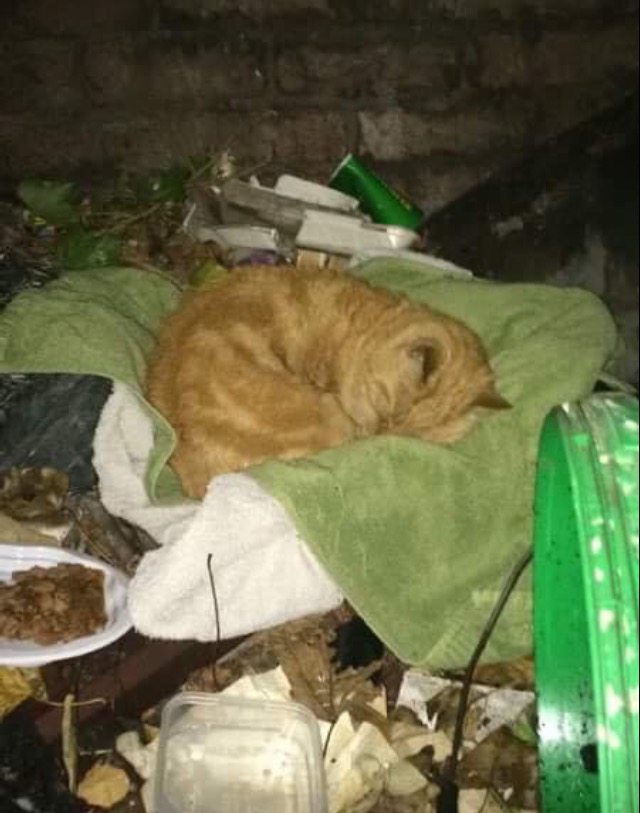What to do if you find an ill or injured cat…..
A couple of days ago, scrolling through posts on a social media feed, I saw something that both unsettled and saddened me. A cat had been found in someone’s shed, and they had posted to try and locate the cats human carers.
The unsettling part to me was that the cat had been left for six days before this action was taken. It reminded me of a message I received little over a year ago regarding a cat locally to me that was in an outbuilding and not looking particularly well. The cat I was contacted about was indeed not well, and when I first approached him I initially had concerns he wasn’t alive. Thankfully, he was. He had a severe infection, among other things, and with treatment made a full recovery. He was neutered, chipped and is now a very much loved family member. The boy found in the shed wasn’t as fortunate. He hadn’t moved simply because he couldn’t; his back end was so damaged by a potential road traffic accident, he was unable. He was chipped, and his human family sadly had to consent to euthanasia on welfare grounds.
While I appreciate that a lot of cats are free roaming, and there’s the possibility of them returning home under their own steam, generally if a cat that doesn’t know you isn’t moving away from you to try and gauge if they are safe or not, it’s highly likely they feel unable to.
A lot of people are concerned they will be held responsible financially if they take an injured or ill cat to the vets. But without intervention, there’s the possibility that the cat won’t survive and will suffer unnecessarily before they pass away.
Below is a list of simple steps
to take if you find an injured or ill cat:
1) Check if the cat is responsive.
2) Check if the cat has been injured or
is a potential infection risk.
3) Make appropriate precautions if the
possibility of infection is present.
4) Call 0300 1234 999 which is the
RSPCA cruelty line and choose the
appropriate option.
Once the option has been responded to, obtain a
reference number to take the cat to receive veterinary attention. While there,
the vets will also be able to check for a microchip and notify any family who
may be missing their cat if a chip is located. The RSPCA will cover a certain
amount of costs. If the total amount isn’t covered, you could set up a
fundraising page to encourage likeminded friends to donate to the outstanding
costs. Funds can be sent directly to most veterinary surgeries if they are informed.
If a chip isn’t located, it’s also a good idea to contact local rescues to try
and obtain rescue back up for the cat.
Everyone is capable of taking affirmative action. Taking the initiative in this situation can make a massive difference to the cat you’re concerned about, and can give them the chance at a long, happy life they deserve or the release that’s needed if they’re in suffering that can’t be medically addressed.
With situations like this, I’m reminded of a quote by Lily Tomlin: “I always thought somebody should do something about that. Then I realised I am somebody.”
You can be the difference…..


